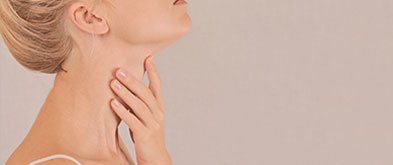Hearing Aids in Rockwall, TX

The Hearing Center at Lakeside Allergy ENT
The Hearing Center at Lakeside Allergy ENT is home to the top audiologists and hearing aid doctors and specialists in Texas who perform hearing evaluations, diagnose and treat hearing loss, and dispense hearing aids. Patients have access to our audiology services at all three of our Texas practice locations – Rockwall. We offer fully digital hearing aids with a variety of manufacturers and styles.
Book an appointment with our hearing aid doctors today using the form on this page, or learn more about our hearing aid services below.
What is a hearing aid?
Perhaps you’ve thought about getting a hearing aid, but you’re worried about how it will look or whether it will really help. Our hearing aid doctors and hearing loss specialists can help ease your concerns by educating you on the types of aids available and how they work. Hearing aids can’t restore normal hearing, but they can improve your hearing by amplifying soft sounds, helping you hear sounds that you have trouble with.
How do hearing aids work?
Hearing aids work by carrying sounds from the environment into your ear and making them louder. Most hearing aids are digital, and all are powered by a hearing aid battery. Small microphones collect sounds from the environment and a computer chip with an amplifier converts the incoming sound into digital code. It analyzes and adjusts the sound based on your hearing loss, listening needs and the level of the sounds around you. The amplified signals are then converted back into sound waves and delivered to your ears through speakers.
The processing of modern digital hearing aids is complex and computer programming by a professional is required to make most adjustments. Many hearing aids also have user controls (e.g. volume control, program button, etc.) that enable the wearer to adjust a variety of hearing aid parameters.
Hearing aid options available at Lakeside Allergy ENT
Lakeside Allergy ENT offers fully digital hearing aids from a variety of manufacturers and in a variety of styles. Our audiologists are licensed and certified to thoroughly evaluate and recommend hearing aids based on the patient’s hearing test, lifestyle, and hearing needs. Each patient’s hearing loss and listening situation is unique. Your hearing aid specialist’s expertise about product quality, features, and options, as well as the monitoring and follow-up services that you will need, are essential for treatment success.
Hearing aids vary a great deal in price, size, special features and the way they’re placed in your ear. Hearing aid designers keep making smaller hearing aids to meet demand for devices that cannot be seen, but smaller aids may not always have the power to provide the improved hearing you expect.
Lakeside Allergy ENT’s hearing loss specialists offer many different types of hearing aids at our Hearing Center, including:
Completely in the Canal (CIC) or Mini CIC
This style of hearing aid fits inside your ear canal and improves mild-to-moderate hearing loss.
In the Canal (ITC)
Custom molded hearing aid that fits partly in the ear canal. It is recommended for mild-to-moderate hearing loss.
In the Ear (ITE)
Custom made hearing aid that comes in two styles — one that fills most of the bowl-shaped area of your outer ear (full shell) and one that fills only the lower part (half shell). It is recommended for mild-to-severe hearing loss.
Behind the Ear (BTE)
BTE hearing aids hook over the top of the ear and rest behind it. A tube connects the hearing aid to a custom earpiece that fits in your ear canal.
Receiver in Canal or Receiver in the Ear (RIC or RITE) and Open Fit
RIC and RITE hearing aid styles are similar to behind the ear hearing aids with the speaker or receiver in the canal or in the ear. A tiny wire connects the pieces.
An open-fit hearing aid is a variation of the behind the ear hearing aid with a thin tube.
All of these styles keep the ear canal very open, allowing for low-frequency sounds to enter the ear naturally and for high-frequency sounds to be amplified through the hearing aid. This makes the style a good choice for people with better hearing in the low-frequency tones.
Additional hearing aid features
Additional features included within certain styles of hearing aids depend on the size and type of device, and might include:
- Noise reduction
- Directional microphones
- Rechargeable batteries for some brands
- Telecoils (phones)
- Wireless connectivity
- Remote controls
- Direct audio input
- Variable programming
- Environmental noise control
- Synchronization (for two hearing aids)
Hearing aids for bilateral hearing loss
If you have hearing loss in both ears (bilateral hearing loss), our hearing aid specialists may recommend two hearing instruments. While an audiologist or hearing loss specialist can determine best if you are a candidate for two hearing instruments, it is important that the person with the hearing loss be given the chance to experience binaural (two hearing instruments) amplification, before a decision on one or two hearing instruments is made. Similar to the way problems in both eyes are treated with a pair of glasses, it makes sense that bilateral hearing loss should be treated with binaural hearing instruments.
Benefits of using two hearing aids
Having two hearing aids can provide the following benefits:
- Better understanding of speech
- Better understanding in group and noisy situations
- Better ability to tell the direction of sound
- Better sound quality
- Smooth tone quality
- Wider hearing range
- Better sound identification
- Keeps both ears active, resulting in potentially less hearing loss deterioration
- Hearing is less tiring and more pleasant
- Feeling of balanced hearing
- Greater comfort when loud noises occur
- Reduced feedback and whistling
- Tinnitus (ringing in the ears) masking
- Higher patient satisfaction
Schedule a Consultation at Lakeside Allergy ENT Hearing Center
If you or a loved one is experiencing any symptoms of hearing loss or would like to learn more about hearing aids at Lakeside Allergy ENT’s hearing center, call our office at 972-771-5443 or get started by requesting an appointment with our hearing aid doctors using the form on this page.






